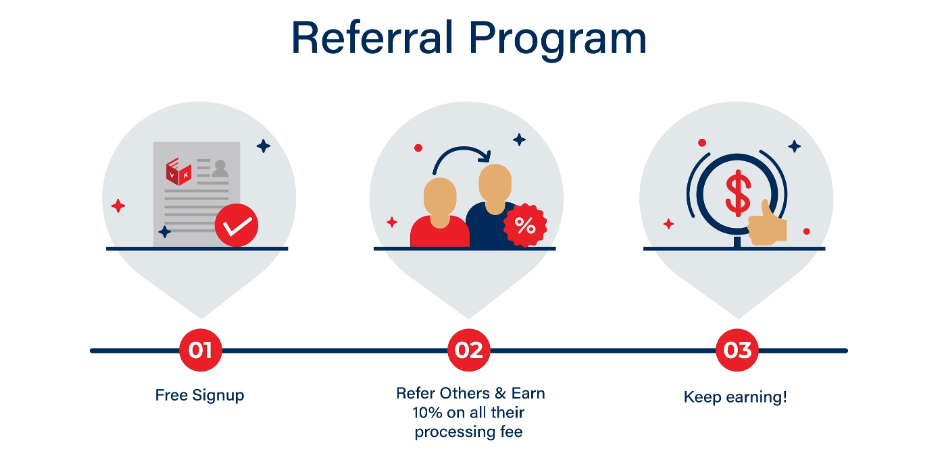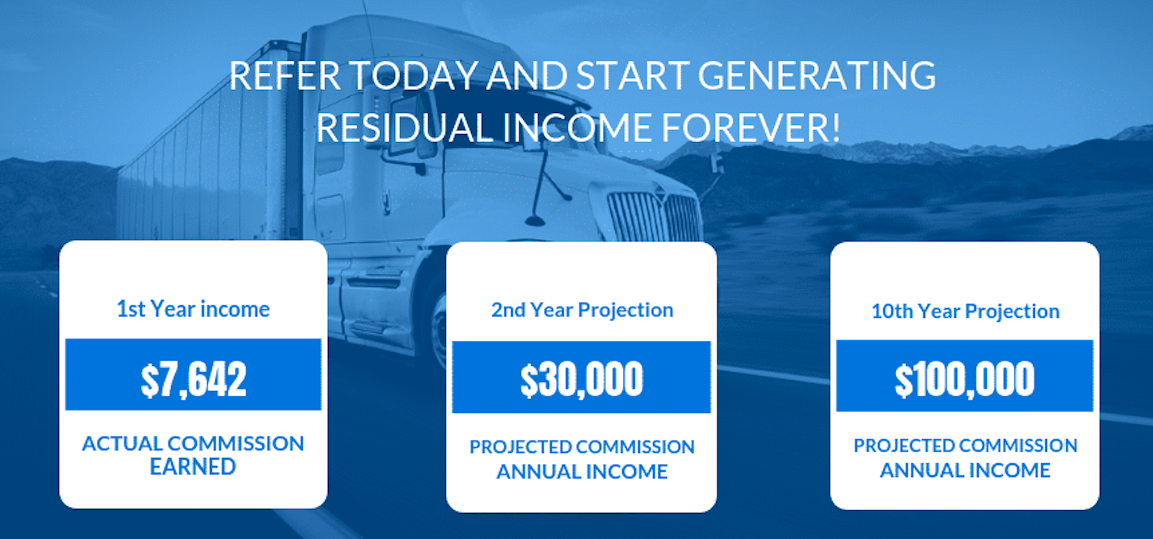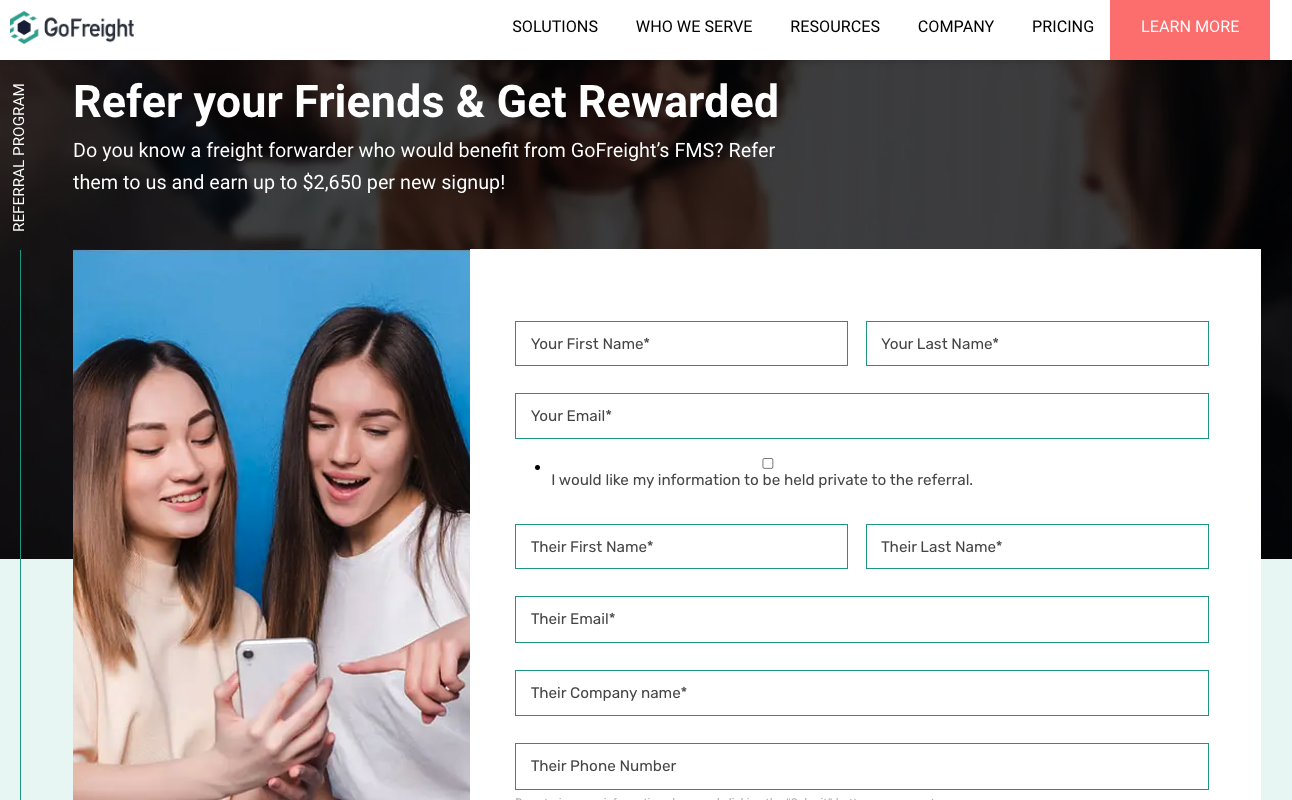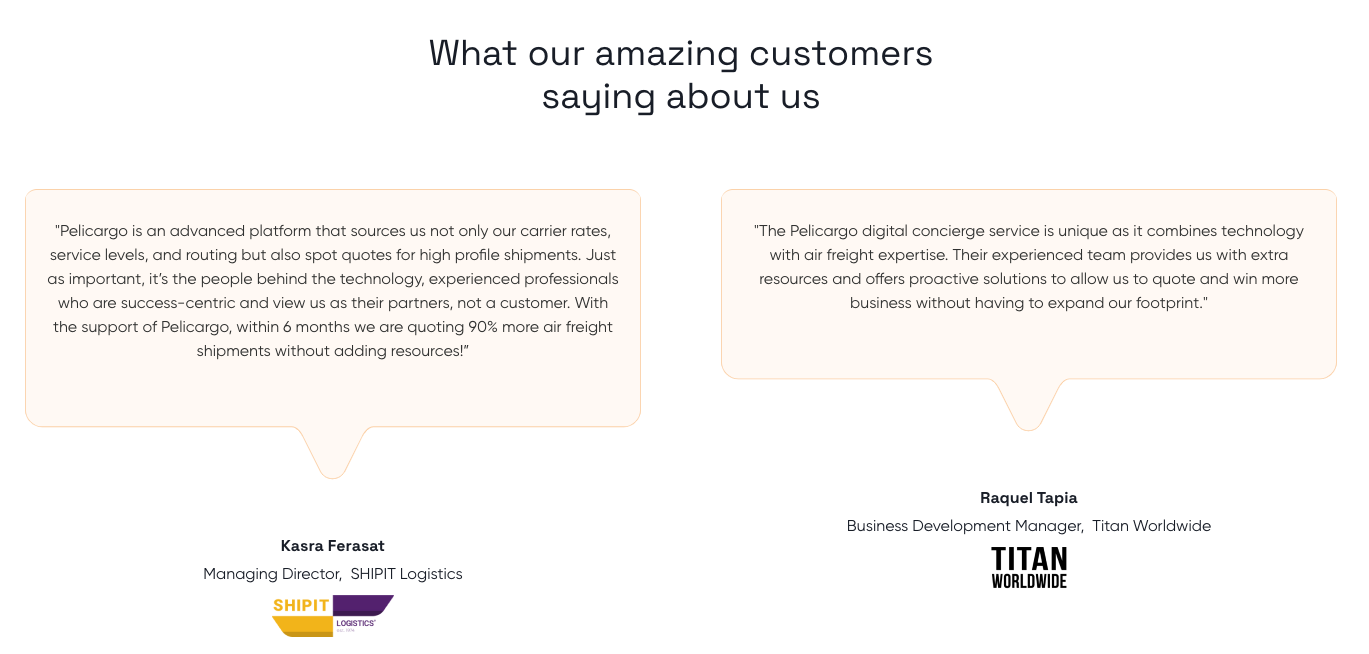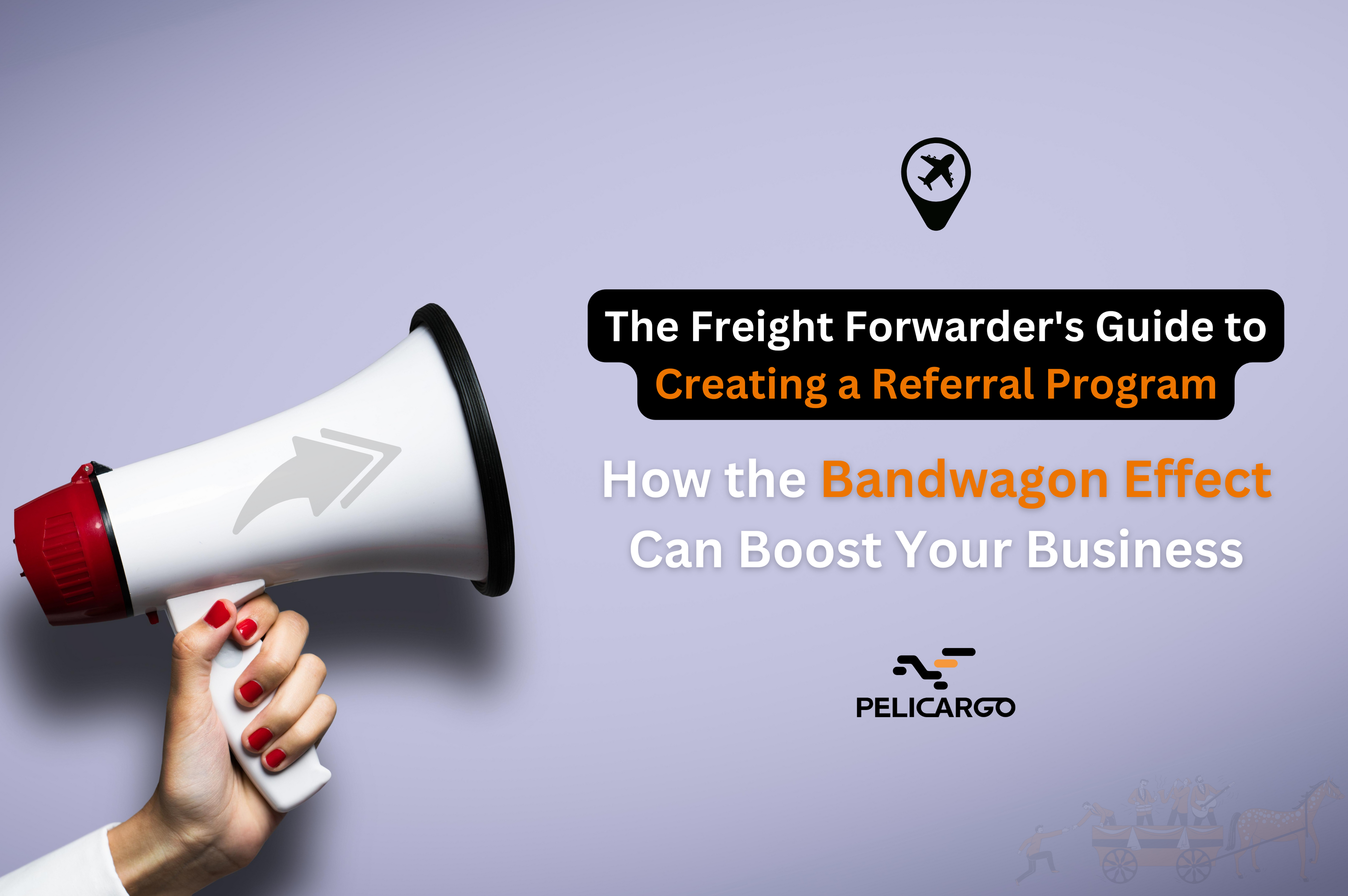
The Freight Forwarder's Guide to Creating a Referral Program: How the Bandwagon Effect Can Boost Your Business
Invalid date
Referral programs can be a game-changer for freight forwarding companies, providing a cost-effective way to attract new customers. This article explores how the bandwagon effect can significantly influence the success of referral programs, driving more business and establishing a solid reputation within the industry. By understanding and leveraging this psychological phenomenon, freight forwarders can create compelling referral programs that encourage existing clients to bring new business on board.
Understanding the Bandwagon Effect in Freight Forwarding
You either jump on it or get left behind…
The bandwagon effect is a psychological phenomenon where individuals adopt beliefs or behaviors because they perceive that others are doing the same. This effect emphasizes conformity and the influence of collective opinion on individual decision-making.
One significant bandwagon effect seen in the logistics industry is the adoption of digital technologies. The significant shift toward adopting new technologies and digitalizing operations in the logistics and freight forwarding industry gained momentum in the 2010s, with substantial acceleration observed in the latter half of the decade due to increasing demands of global trade and the rise of e-commerce. [1]
Companies like DHL have invested heavily in digital transformation to optimize freight forwarding processes, including automation, tracking, and customer interaction enhancements. [2] As the industry evolves, companies that do not participate in this digital bandwagon risk falling behind, losing out to more agile competitors who can meet the demands of a connected and fast-paced global market.
Leveraging the Bandwagon Effect for Successful Referral Programs
When referral programs steer the wagon…
As your company aims to capitalize on the bandwagon effect, your clients or customers must join in as well. Foster a bandwagon effect in marketing by leveraging referral programs. Implement well-thought-out business perks and provide incentives for those who refer others and the new clients they bring. This strategy will significantly enhance your business growth.
The psychological magic behind referral programs…
Social proof is a powerful psychological concept used in marketing, particularly effective in referral programs. When potential customers observe peers or business competitors benefiting from a referral program, their trust in the product or service increases, making them more likely to participate.

Designing Effective Referral Programs in Freight Forwarding
Referral programs in freight forwarding are typically designed to encourage current clients to recommend new clients by offering incentives. These programs often provide benefits both to the referrer and the referred, such as discounts on services, credits, or even direct monetary rewards. The goal is to leverage satisfied customers' networks to expand the client base cost-effectively, boosting business growth through referrals.
Spread the perks! Rope in your loyal customers...
Creating a well-designed freight forwarding referral program isn't particularly difficult, but it surely does require a thorough understanding of your current customers and prospective target audience. Below is a case study on a referral program launched by GoFreight, illustrating the strategic approach taken.
Case Study: GoFreight.com (SaaS provider for freight forwarders | 1000+ customers)
- “Refer a friend” program: Featuring a simple and accessible call to action, encouraging existing customers to refer new clients.
- Dual Benefit Approach: Offering incentives to both the referrer and the referred, enhancing engagement and satisfaction.
Digital Tools Support: GoFreight supports its referral program with robust digital tools, including a comprehensive CRM system.
Crafting a Winning Referral Program: A Step-by-Step Guide
A freight forwarding referral program is a highly effective marketing strategy for small and mid-sized forwarding companies because it typically requires no upfront costs. It leverages your existing customers to generate new leads, which your marketing team can then nurture and convert into loyal customers.
Here are the steps to create your own referral program. Get started today! [4]
- Create Customer Referral Templates: Utilize online templates to craft referral requests that match your brand’s tone and specialization. Distribute these through your email marketing campaigns to engage existing customers effectively.
- Offer Rewards for Referrals: Incentivize your customers to refer others by offering rewards such as free gifts, discounts, or complimentary services for each successful referral. This token of appreciation can significantly motivate customers to seek referral opportunities for your business actively.
- Identify Potential Advocates: Compile a database of satisfied customers from past and present. These individuals are valuable resources who can help expand your client base through positive word-of-mouth.
- Develop a Communication Plan: Strategize on how to contact potential referrers, starting with your most loyal customers. While social media is a useful tool, a structured email marketing approach remains ideal for making a formal referral request. Ensure your emails are concise, with a clear headline, direct content, and a compelling call to action (CTA).
- Follow Up Promptly on Referrals: Act quickly on leads from referrals to maximize their potential. Delaying follow-up could result in losing those prospects to competitors, given they may also receive referrals.
As you guide potential customers to your referral program page, be sure to feature positive client testimonials near the sign-up form. This strategy is effective in resolving any last-minute hesitations they might have. Additionally, encourage referred customers to provide their own testimonials or feedback.
Offering extra perks for their contributions can further enhance their engagement and loyalty to your service. This approach not only builds trust but also strengthens the credibility of your program through real user experiences.
Measuring the Success of Referral Programs
Establishing the right metrics is crucial for gauging the success of your freight forwarding referral program. Properly set KPIs enable you to identify strengths and weaknesses, pinpoint potential customer segments, and uncover design flaws that may be undermining your program's effectiveness.
You can make data-driven adjustments to enhance program performance by continuously monitoring these metrics. Below is a list of key performance indicators (KPIs) to help you effectively track and refine your referral program’s impact. [5] (Try the Referral ROI Calculator here)
Sharing Rate - Measures the percentage of customers who share your referral program with others.
- Sharing Rate = (Number of Customers Sharing Referrals / Total Number of Customers) * 100
Referral Visits - Tracks the number of visits to your site from referral links.
- Referral Visits = Total number of visits from referred friends
Referral Conversion Rate - Calculates the percentage of referred visitors who make a purchase.
- Referral Conversion Rate = (Number of purchases from referred customers / Total number of referral shares) * 100
Referral Rate - The proportion of total sales attributed to referrals.
- Referral Rate = (Number of purchases from referrals / Total number of purchases) * 100
Lift on Revenue - Assesses the increase in revenue generated from the referral program.
- Lift on Revenue = (Revenue during referral program - Baseline Revenue) / (Baseline Revenue) * 100
Cost per Acquisition (CPA) - Determines the cost to acquire a new customer through the program.
- CPA = Total Program Cost / Number of New Customers Acquired
Return on Investment (ROI) - Evaluates the profitability of the referral program.
- ROI = ((Total Revenue - Total Cost) / Total Cost) * 100
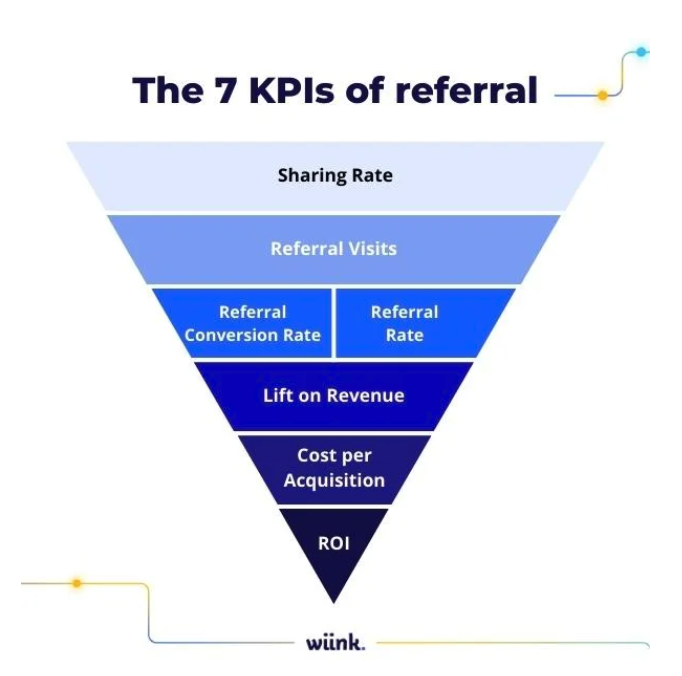 (Source: Loyoly)
(Source: Loyoly)
Conclusion
Implementing a referral program can significantly boost business growth by tapping into the bandwagon effect in marketing. Freight forwarders should seize this opportunity to enhance their market presence through strategic referrals. Maintaining flexible strategies and regular communication with clients is key to adapting and ensuring the long-term success and impact of your freight forwarding referral program.
Primary Research & Draft : Ken Miao
Contact Pelicargo today to discover how our system can support you and your team, easing the pressures and enhancing your operational success.
Related Blogs
Subscribe to our newsletter
Discover what it's like to be a part of the Pelicargo team.
See how Pelicargo can support business today
Contact Us
See how Pelicargo can support business today
Contact UsAddress
770 Massachusetts Ave, 390054, Cambridge, MA 02139
Pelicargo 2023 All Rights Reserved

